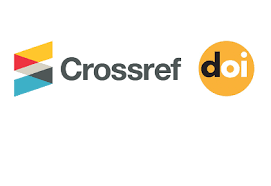Publication Ethics and Malpractice State
Common Ground Research Networks takes intellectual integrity very seriously. The publisher, editors, reviewers, and authors all agree upon the following standards of expected ethical behavior, which are based on the Committee on Publication Ethics (COPE) Core Practices.
Duties of Publisher
Publication Decisions
Common Ground's editorial team, in consultation with the journal or journal collection’s editor(s), is responsible for deciding which submitted articles should be published. The editorial team may confer with the journal editor and will strongly consider peer reviewers' comments and recommendations as part of this decision-making process.
Fair Play
Submitted articles will be evaluated according to their intellectual merit, without regard to the race, gender, sexual orientation, religious beliefs, ethnic origin, citizenship, political philosophy, or institutional affiliation of the author(s).
Confidentiality
Editorial staff will not disclose any information about a submitted manuscript to anyone other than the corresponding author, reviewers, potential reviewers, or other editorial advisers.
Disclosures of Conflicts of Interest
Unpublished material must not be used in an editor's own research without the written consent of the author.
Duties of Reviewers
Contribution to Editorial Decisions
Recommendations by peer reviewers are the single most important determining factor in whether a manuscript is accepted for publication. They may also help the author improve a manuscript that has been accepted pending revisions.
Promptness
Peer reviewers are asked to complete their reviews within two weeks of receiving a peer review assignment. If they cannot complete the report within two weeks, they may ask for an extension. If a peer reviewer feels unqualified to review a particular manuscript, he or she may notify a member of Common Ground’s editorial team to be excused from the assignment.
Confidentiality
Any manuscript received for review will be treated as confidential. It must not be shown to or discussed with others except as authorized by Common Ground’s editorial team.
Standards of Objectivity
Reviews should be conducted objectively. Personal criticism of the author is inappropriate. Reviewers should express their views clearly with supporting arguments.
Acknowledgment of Sources and Identification of Possible Plagiarism
Reviewers should identify relevant published work that has not been cited by the authors. Reports of statements, observations, or arguments that have been noted elsewhere should be accompanied by a relevant citation. A reviewer should also call the editor's attention to any substantial similarity or overlap between the manuscript under consideration and any other published paper of which they have personal knowledge.
Disclosure and Conflict of Interest
If a peer reviewer feels unqualified to review a particular manuscript, he or she must notify a member of Common Ground Research Networks' editorial team to be excused from the assignment. Privileged information or ideas obtained through peer review must be kept confidential and not be used for personal benefit. Reviewers should not consider manuscripts in which they have conflicts of interest resulting from competitive, collaborative, or other relationships or connections with any of the authors, companies, or institutions connected to the papers under review.
Duties of Authors
Reporting Standards
Authors of reports of original research should present an accurate account of the work performed, as well as an objective discussion of its significance.
Data Access and Retention
Authors are asked to provide the raw data in connection with the paper for editorial review, and should be prepared to provide public access to such data whenever possible. In any event, authors should be prepared to retain such data for a reasonable amount of time after publication.
Originality and Plagiarism
Authors should ensure that they have written entirely original work, and if they have used the work and/or words of others that this has been appropriately cited and quoted. Articles found to have plagiarized material will be withdrawn from publication consideration. If plagiarism is found after an article is published, the publisher will contact the author for a response to the allegations. In cases of proven plagiarism or nonresponse/inadequate response, the offending article will be retracted and a statement from the publisher will be inserted in its place in the relevant journal issue.
Multiple, Redundant, or Concurrent Publication
Submitting the same manuscript to more than one journal concurrently constitutes unethical publishing behavior and it is unacceptable. Manuscripts must only be peer reviewed by one journal at a time. Common Ground Research Networks will consider publishing articles that have been published elsewhere previously, provided that they have undergone substantial revision or reworking. In such cases, 70 percent of the article must consist of new or significantly revised material.
Acknowledgment of Sources
Proper acknowledgment of the work of others must always be given. Authors should cite publications that have been influential in determining the nature of the reported work.
Authorship of the Article
Authorship should be limited to those who have made a significant contribution to the conception, design, execution, or interpretation of the reported study. All those who have made significant contributions should be listed as coauthors. Where there are others who participated in certain substantial aspects of the research project, they should be acknowledged or listed as contributors. The corresponding author should ensure that all appropriate coauthors and no inappropriate coauthors are included on the paper, and that all coauthors have seen and approved the final version of the article and agreed to its submission for publication.
Disclosure and Conflicts of Interest
Authors should disclose in their manuscript any financial or other substantive conflict of interest that might be construed to influence the results or interpretation of the manuscript. All sources of financial support for the project should be disclosed.
Fundamental Errors in Published Works
When an author discovers a significant error or inaccuracy in his or her own published work, it is the author's obligation to promptly notify the publisher and cooperate with Common Ground’s editorial team to correct or retract the article.
Informed Consent for Human and Animal Rights
Statement on Human and Animal Rights
For research studies using human or animal subjects, the trial’s design, conduct, and reporting of results must conform to Good Clinical Practice guidelines (such as the Good Clinical Practice in Food and Drug Administration (FDA)-Regulated Clinical Trials (USA) or the Medical Research Council Guidelines for Good Clinical Practice in Clinical Trials (UK)) and/or to the World Medical Association (WMA) Declaration of Helsinki.
Any work describing a study that used human subjects must include a statement that affirms the experiments were performed with prior informed consent (written or verbal, as appropriate) from each participant.
Humans: When reporting experiments on human subjects, authors should indicate whether the procedures followed were in accordance with the ethical standards of the responsible committee on human experimentation (institutional and national) and with the Helsinki Declaration of 1975, as revised in 2008 (5). If doubt exists whether the research was conducted in accordance with the Helsinki Declaration, the author(s) must explain the rationale for their approach and demonstrate that the institutional review body explicitly approved the doubtful aspects of the study.
Animals: When reporting experiments on animals, authors should indicate whether the institutional and national guide for the care and use of laboratory animals was followed. Experimental research on vertebrates or any regulated invertebrates must comply with institutional, national, or international guidelines, and where available should have been approved by an appropriate ethics committee. A statement detailing compliance with guidelines and/or ethical approval must be included in the work. For studies involving client-owned animals, author(s) must document informed client consent and adherence to a high standard (best practice) of veterinary care.
Statement on Informed Consent
Consent: For all research involving human subjects, informed consent to participate in the study should be obtained from participants (or their parent or guardian in the case of children under 18 and a statement to this effect should appear in the work.
Consent for publication of individual patient data: For all works that include details, images, or videos relating to individual participants, written informed consent for the publication of these must be obtained from the participants (or their parent or legal guardian in the case of children under 18) and a statement to this effect should appear in the work. A consent form must be made available to the Editor(s) on request and will be treated confidentially. In cases where images are entirely unidentifiable and there are no details on individuals reported within the manuscript, consent for publication of images may not be required. The final decision on whether consent to publish is required lies with the Editor(s).
Patients have a right to privacy that should not be infringed without informed consent. Identifying information, including patients’ names, initials, or hospital numbers, should not be published in written descriptions, photographs, or pedigrees unless the information is essential for scientific purposes and the patient (or parent or guardian) gives written informed consent for publication. Informed consent for this purpose requires that a patient who is identifiable be shown the manuscript to be published. Authors should identify individuals who provide writing assistance and disclose the funding source for this assistance. Identifying details should be omitted if they are not essential. Complete anonymity is difficult to achieve, however, an informed consent should be obtained if there is any doubt. For example, masking the eye region in photographs of patients is inadequate protection of anonymity. If identifying characteristics are altered to protect anonymity, such as in genetic pedigrees, author(s) should provide assurance that alterations do not distort scientific meaning and the author(s) are responsible to notify the editor(s) in such instances and editor(s) should so note accordingly. The requirement for informed consent should be included in the journal’s instructions for authors. When informed consent has been obtained it should be indicated in the published work.












